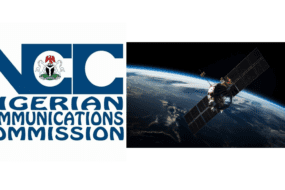South Africa is preparing for a phased increase in its value-added tax (VAT) rate as part of efforts to tackle its financial challenges. During the 2025 Budget Speech delivered on March 12, 2025, Finance Minister Enoch Godongwana revealed plans to gradually raise the VAT rate from 15% to 16% by April 1, 2026. The first phase, involving a 0.5 percentage point increase, will take effect from May 1, 2025, with the remaining increment following the next year.
The decision comes after heated discussions within the coalition government. Initially, there were calls for a 2-percentage-point hike aimed at addressing a R60 billion ($3.2 trillion) fiscal deficit, partly due to the termination of U.S. funding for HIV/AIDS programmes under former President Donald Trump. However, opposition from coalition members, particularly the Democratic Alliance (DA) and prominent African National Congress (ANC) figures, resulted in a compromise to implement the increase gradually.
Minister Godongwana acknowledged the potential economic impact of the move but stressed its necessity to meet critical spending needs in areas such as health, education, transport, and security. “It is a difficult but essential step to fulfil our constitutional obligations,” he stated.
Revenue Projections and Political Resistance
The incremental VAT increase is expected to generate an additional R13.5 billion ($736 billion) for the 2025/26 fiscal year. The government believes that spreading the hike over two years will help balance revenue growth without overburdening consumers amid a fragile economic environment.
In addition to the VAT changes, the 2025/26 budget includes a freeze on personal income tax bracket adjustments and rebates. This decision, known as “bracket creep,” is projected to raise R18 billion ($981 billion) as taxpayers who receive inflation-linked salary increases may find themselves pushed into higher tax brackets.
To soften the impact of the VAT hike on low-income households, the government plans to expand the list of zero-rated VAT items. Currently, 21 items are exempt from VAT, but starting from May 1, 2025, this list will include essential goods such as tinned or canned vegetables, dairy liquid blends, and various meats, including sheep, poultry, goat, and swine.
Despite these adjustments, political resistance remains strong. DA leader John Steenhuisen has firmly opposed any tax increases, urging the government to consider alternatives like selling port concessions and implementing cost-cutting measures. The DA’s stance highlights the ongoing friction within the coalition government, as conflicting ideologies and policy preferences continue to clash over economic recovery strategies.
Economic Challenges and Future Outlook
The announcement of the VAT increase comes at a time when South Africa’s economic growth has been sluggish. Treasury officials have adjusted the 2025 growth forecast to 1.9%, following a bleak 0.6% growth in 2024. The disappointing performance was primarily due to a third-quarter contraction, triggered by weaknesses in the transport and agriculture sectors, with the latter suffering from disease outbreaks and drought.
In a bid to stabilise gross loan debt at 76.2% of GDP for the 2025/26 fiscal year, the government aims to achieve a primary budget surplus. The consolidated budget deficit is projected to shrink from 5% this year to 3.5% by 2027/28. However, servicing this debt remains a major concern, with costs reaching R389.6 billion, surpassing spending on health, police, and basic education.
While the VAT increase is the most significant change in tax policy, it is not the only one. Excise duties on alcohol and tobacco will rise by 6.75% and 4.75%, respectively, exceeding projected inflation rates. On the other hand, fuel levies will remain unchanged to avoid further financial strain on consumers.
This phased approach to raising VAT reflects the government’s attempt to strike a delicate balance between fiscal responsibility, economic growth, and social welfare. However, with political opposition mounting and economic conditions remaining challenging, the effectiveness of this strategy remains to be seen.







One reply on “South Africa Plans VAT Hike Amid Revenue Pressure”
[…] South Africa has canceled its plan to increase value-added tax (VAT) after facing strong opposition from political parties and civil society groups. The National Treasury had suggested a 1% VAT hike over two years to close a $4.02 billion (R75 billion) budget gap. […]